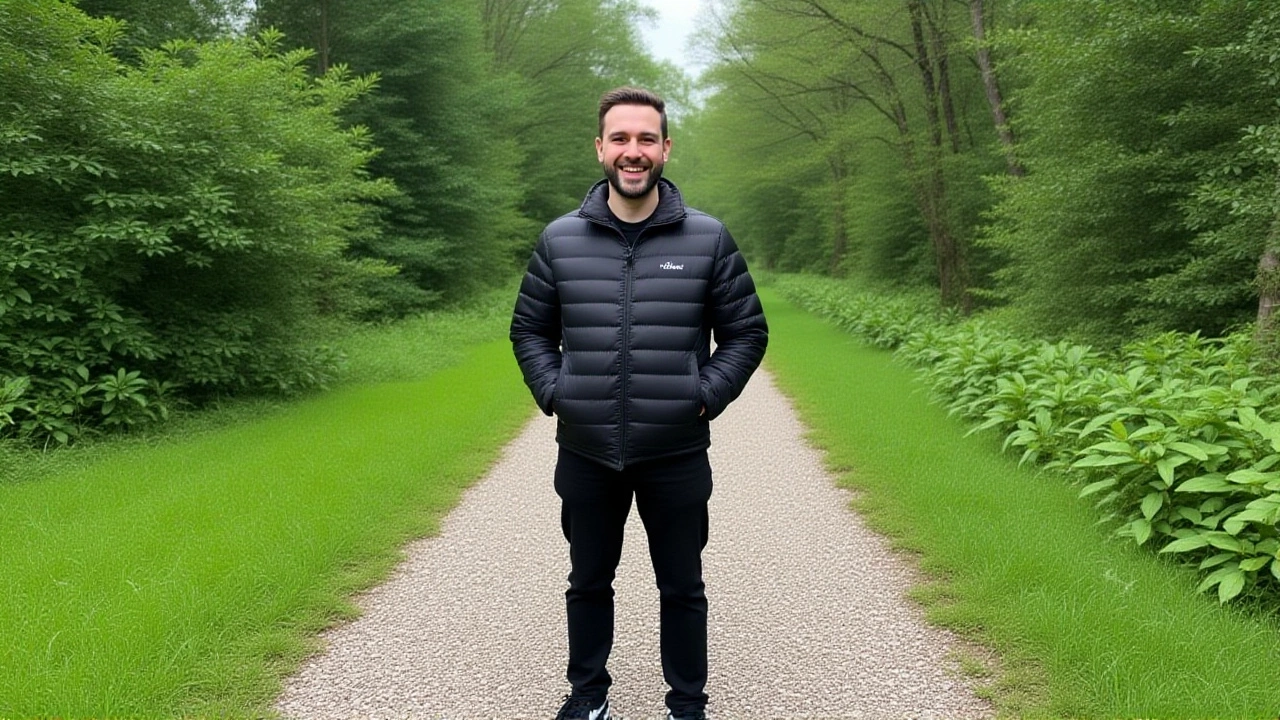When Rich, a father of three from Cheshire walked into his GP’s surgery in early September, he was on the brink of collapse. The 39‑year‑old had spent more than a year juggling a high‑pressure role that kept him away from home, a relentless schedule, and the daily demands of school runs and bedtime stories. "I was over‑worked, stressed and I wasn’t getting the right level of support at work," he told the regional press on October 9 2024. "After a while, I just burnt out."
The story is a micro‑cosm of a broader crisis that the NHS is trying to tackle ahead of World Mental Health Day, an international observance that lands on October 10 each year. This year’s theme, "Workplace mental well‑being," zeroes in on the hidden toll that demanding jobs can exact on both mind and body. According to the Office for National Statistics, one in four adults in the UK reported that work‑related stress affected their health in 2023, a figure that has nudged policymakers to prioritize mental health support in the workplace.
Why World Mental Health Day Matters
The global day was launched by the World Health Organization in 1992, and it has grown into a rallying point for governments, NGOs, and employers worldwide. In the UK, the Ministry of Health partners with charities such as Mind and the Mental Health Foundation to disseminate resources, run campaigns, and fund research. This year, the UK government has earmarked £12 million for workplace‑focused mental health programmes, a modest rise from the £9.5 million allocated in 2022.
Rich’s Journey: From Burnout to Back‑on‑Track
Rich’s turning point arrived after a string of sleepless nights and a worrying spike in sick days—something he hadn’t experienced in his 14‑year career. "My physical health has always been particularly important to me, but I was no longer looking after it like I had previously," he recalled. He booked an appointment with his general practitioner, who promptly referred him to the NHS Talking Therapies service.
This service is delivered locally by Cheshire and Wirral Partnership NHS Foundation Trust. The Trust’s digital arm offered Rich an Internet‑based cognitive behavioural therapy (iCBT) programme, a proven approach that reduces symptoms of anxiety and depression in approximately 60 % of users, according to a 2022 NHS Digital report. Alongside iCBT, Rich was signed up for the Employment Support Service, a specialist team that helps employees navigate stressors at work, negotiate reasonable adjustments, and develop coping strategies.
NHS North West’s Campaign and Services
On October 9 2024, NHS North West launched a multimedia campaign spotlighting stories like Rich’s to demystify the help that’s available. The rollout included a short film aired on regional TV, a series of social‑media graphics, and a printable guide titled "Your mental health toolkit at work." The guide lists five practical steps employees can take immediately:
- Identify early warning signs – fatigue, irritability, reduced concentration.
- Speak to a line manager or HR about workload concerns.
- Access NHS Talking Therapies or local IAPT (Improving Access to Psychological Therapies) services.
- Use the Employee Assistance Programme (EAP) for confidential counselling.
- Consider flexible working arrangements where possible.
Greater Manchester Mental Health NHS Foundation Trust’s Activities
While NHS North West rolled out the broader communication push, Greater Manchester Mental Health NHS Foundation Trust (GMMH) organised a series of on‑the‑ground events. The flagship drop‑in took place at Gorton Hub on Thursday, October 10 2024, from 10 am to 2 pm. Staff from the Trust, along with volunteers from local charities, offered one‑to‑one chats, self‑help literature, and a mini‑workshop led by a Disability Employment Advisor on managing mental health disclosures at work.
Attendees could also sign up for a free mental health first‑aid training session scheduled for the following week. According to GMMH’s Chief Executive, Prof. Sarah Gormley, the event attracted over 200 participants – a clear signal that the demand for workplace‑focused support is far higher than previously thought.
Recovery Academy’s Autumn Prospectus
In tandem with the WHO‑led global campaign, the Trust’s Recovery Academy launched its Autumn Prospectus on October 1 2024. The Prospectus showcases a suite of face‑to‑face courses aimed at both healthcare workers and the broader public. New offerings include:
- Connect 5 Sessions – a peer‑support circle for people navigating chronic mental health conditions.
- Family Connections – workshops teaching relatives how to recognise signs of distress and provide appropriate support.
- Forensic Mental Health – a specialised series for professionals working within the criminal justice system.
- Your Legal Rights under the Mental Health Act – a rights‑focused briefing for patients, families, and advocates.
What’s Next for Workplace Mental Health?
Looking ahead, NHS North West plans to embed mental‑health checkpoints into routine occupational health reviews, a move that could make early detection as commonplace as annual blood pressure checks. Meanwhile, GMMH is piloting a "Mental Health Champions" programme in partnership with local SMEs, training a handful of employees in each company to act as first‑line resources for colleagues.
For Rich, the combination of iCBT, the Employment Support Service, and a series of practical coping tools has already made a noticeable difference. "I’m back to taking a day off when I need it, and my GP says my blood pressure has normalised," he said, smiling. "I feel like I have a plan now, not just a problem."
Frequently Asked Questions
How can employees access NHS Talking Therapies in the North West?
People can self‑refer through their GP or contact the IAPT service directly via the NHS website. In Cheshire and Wirral, the referral is processed by the Cheshire and Wirral Partnership NHS Foundation Trust, which then matches users with an iCBT programme or face‑to‑face therapy within two weeks.
What support is available for managers who want to improve workplace wellbeing?
Greater Manchester Mental Health NHS Foundation Trust offers a free “Mental Health First Aid for Managers” workshop. Additionally, the Disability Employment Advisor at the World Mental Health Day drop‑in can provide guidance on reasonable adjustments and legal obligations under the Equality Act.
Why is workplace mental health a focus for World Mental Health Day 2024?
Surveys show that stress‑related absenteeism costs the UK economy roughly £15 billion each year. By targeting the workplace, the campaign aims to reduce stigma, improve productivity, and lower healthcare costs, aligning with the WHO’s broader goal of universal mental health coverage.
What are the new courses launched by the Recovery Academy?
The Autumn Prospectus adds four face‑to‑face courses: Connect 5 Sessions, Family Connections, Forensic Mental Health, and Your Legal Rights under the Mental Health Act. Each is designed to give participants practical skills and up‑to‑date knowledge on specific mental‑health challenges.
What impact has the NHS campaign had so far?
Within two weeks of the October 9 launch, the NHS North West website saw a 45 % increase in traffic to the mental‑health toolkit page, and the NHS Talking Therapies hotline recorded a 30 % rise in calls from the North West region.





